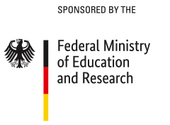The aim of the project is to automate mentoring processes through knowledge services using hybrid AI methods. For this purpose, the didactic knowledge of mentoring processes in rule based systems and machine learning (ML) processes is modeled. This allows the knowledge services to recognize relevant situations and emotions as well as provide learners with individually tailored support. In order to achieve the goal, the basic components of adaptive learning systems, i.e. models of mentoring and learning processes, of knowledge and skills, are designed, implemented and evaluated in cooperation with the other project partners.
On the one hand, the formalization of the relevant didactic knowledge is rule-based: Models with learning materials will enable personalized recommendations and adaptive evaluations, considering the personal characteristics and context factors. On the other hand, ML methods are applied: in sensor-based recognition of affective learning states and mentoring situations, as well as multimodal analyzes of aggregated data from sensors, LMS and chatbots. For this purpose, the previous work with the Moodmetric Ring will be expanded to include face recognition and analysis of the ECG signal, since these two signals are much more meaningful.
Partners
- Universität Leipzig
- Technische Universität Dresden
- Deutsches Forschungszentrum für Künstliche Intelligenz GmbH
- Martin-Luther-Universität Halle-Wittenberg
- Technische Universität Chemnitz
- Hochschule für Technik, Wirtschaft und Kultur Leipzig
- Freie Universität Berlin
- RWTH Aachen

